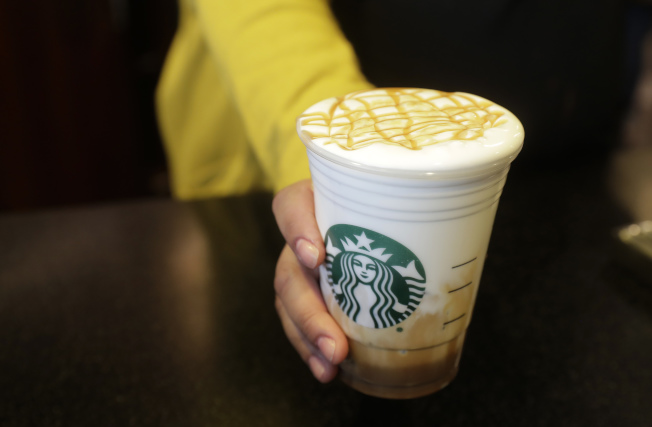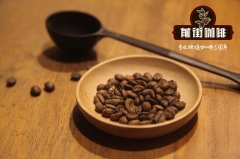The price of coffee beans collapsed, but the lattes we bought were still so expensive!

Professional coffee knowledge exchange more coffee bean information please follow the coffee workshop (Wechat official account cafe_style)
The price of coffee beans has collapsed, and the price of coffee on the market remains completely unchanged.
Even if the price of a pound of coffee beans may fall sharply, it doesn't mean that consumers will have a discount on the craft drink they drink every morning.
Arabica beans, the most commonly used beans in large coffee chains, including Starbucks, have been selling for less than 1 yuan a pound since March, the lowest price in more than a decade. A pound of powdered coffee may make about 48 cups of coffee on average.
A wide variety of Arabica coffee beans are grown around the world, and their tastes vary from place to place.
But experts say consumers will still buy a cup of coffee or latte in stores and cafes at the same price. Although the price of wholesale coffee beans has been falling, the price of coffee for consumers has actually been rising.
According to market research firm NPD Group, the average price consumers pay for a cup of coffee in fast-food restaurants or full-service restaurants is 2.99 yuan, up 8 points from last year. In the boutique coffee shop, the price is 4.24 yuan, an increase of 8 points over last year. Some of the most upscale coffee drinks, such as those sold at Eleven Madison Park in New York City, are made from Wush Wush, a rare coffee variety from a Colombian farm, which can cost up to 24 yuan per cup.
At Starbucks, the nation's best-known coffee chain, customers pay 1.95 to 2.15 yuan for 12 ounces of large coffee, up 10 to 20 cents from 2018, depending on the location of the store.
What makes Arabica coffee beans different from other kinds
Brice Jones, co-founder of Freehold Coffee Bar and Food Restaurant in Williamsburg, Brooklyn, New York, says a bag of proprietary Stumptown blends from Africa and Costa Rica costs as much as 10 yuan per pound. Each small cup of coffee costs 2.50 yuan and a latte costs 4.25 yuan.
"you never know what your Arabica coffee beans taste like," he said. "We prefer to know where it comes from, whether producers use good farming practices and be kind to farmers."
Arabica coffee beans are usually sweeter and more fruity than robusta coffee beans, which taste earthy and cereal. More importantly, a wide variety of Arabica coffee beans are grown around the world, and their tastes vary depending on where they are planted.
Jones said that a cup of latte costs nearly 1 yuan, which is estimated to cost only 35 cents for milk, while another 35 cents for coffee can break down 10 cents for paper cups, 10 cents for the production process and 10 cents for labor.
"in New York City, people don't even blink when they buy a $10 bottle of vodka soda, but when a latte costs $6, everyone gets mad," he said. "
In New York City, people don't even blink for 10 yuan for a bottle of vodka soda, and they can't stand it for 6 yuan for a cup of coffee.
Why is it still expensive to buy coffee in cafes and shops
Sal Santuccio, director of coffee at Pan American Coffee Co., a national retail chain based in Hoboken, New Jersey, says the company has always paid 1.34 yuan per pound for unbaked and unprocessed Arabica coffee.
Two types of coffee are widely used commercially: Arabica coffee, which is of the highest quality and most affected by climate change, and robusta coffee, which can grow in warm conditions but is not very popular.
Like Pinot Noir, wines are cheap and expensive; different varieties of Arabica coffee are sold at higher prices depending on where and how they are grown.
Arabica coffee is of the highest quality and is most affected by climate change.
Pan American Coffee, which bakes and packages coffee beans, sells them in bags at grocery chains such as Wal-Mart and Target, with an average price of between Rmb4.99and Rmb8.
Santuccio points out, "just because the price of coffee beans has fallen does not necessarily mean that retail bag prices will go down."you still have to pay for labor, baking, processing and packaging."
He said it costs about 2.13 yuan to produce a bag of coffee powder for retailers, not including the fees the company has to pay to transport and store coffee.
The low price of coffee beans has a negative impact on coffee farmers.
Coffee has a long way to go from the origin to the kitchen.
Nearly 40% of the world's coffee beans are grown in Brazil, 20% in Vietnam, followed by Colombia, Indonesia and Honduras. But due to Brazil's overproduction and currency depreciation, the Brazilian dollar is 60% lower against the dollar than in 2011, making coffee beans cheap.
Low coffee bean prices have a negative impact on coffee farmers, who are unable to pay for planting and make a profit, often leading to poor working conditions for coffee pickers and their families.
Last year, Starbucks promised 20 million yuan in emergency relief to farmers affected by low coffee bean prices in Central America. Noelle Novoa, a spokesman for Starbucks, declined to disclose the wholesale price of one pound of coffee beans bought by Starbucks.
But she says there are many costs associated with purchasing and roasting coffee, maintaining quality, as well as store design, product and packaging, as well as research and development of transportation, distribution and labor.
Starbucks says it only buys the best Arabica coffee.
"Starbucks only buys the best Arabica coffee," she stressed. "according to the standards we set with Conservation International, about 99 per cent of Starbucks coffee on the market meets ethical standards." "the other 1% comes from new sources that we are exploring," she added. "We are paying a lot of money for it."
END
Important Notice :
前街咖啡 FrontStreet Coffee has moved to new addredd:
FrontStreet Coffee Address: 315,Donghua East Road,GuangZhou
Tel:020 38364473
- Prev

Nestle Coffee "Beijing feeling" CAF é Beijing debut, Beijing feeling Cafe opening
Professional coffee knowledge exchange more coffee bean information please follow the coffee workshop (Wechat official account cafe_style) 2019 Nestle Coffee Beijing sense CAF offline flash store (hereinafter referred to as Nestle Coffee sense CAF) was unveiled at No. 27 Internal Affairs Street, Dongcheng District, Beijing, from April 27th to May 5th. This pop-up cafe, transformed from the traditional Beijing siheyuan, is owned by the famous architect Zhuang Ziyu.
- Next

Is coffee a headache elixir or poison? Experts analyze it like this.
Professional coffee knowledge exchange more coffee bean information Please follow the coffee workshop (Wechat official account cafe_style) some people are used to having a cup of coffee when they have a headache. Does coffee really relieve headaches? The Huffington Post reported the answer: coffee may ease his headache, but it makes your headache worse, and the results vary from person to person and from headache to cause. California dietitian, USA
Related
- What grade does Jamaica Blue Mountain No. 1 coffee belong to and how to drink it better? What is the highest grade of Blue Mountain coffee for coffee aristocrats?
- What are the flavor characteristics of the world-famous coffee Blue Mountain No. 1 Golden Mantelin? What are the characteristics of deep-roasted bitter coffee?
- Can I make coffee a second time in an Italian hand-brewed mocha pot? Why can't coffee be brewed several times like tea leaves?
- Hand-brewed coffee flows with a knife and a tornado. How to brew it? What is the proportion of grinding water and water temperature divided into?
- What is the difference between Indonesian Sumatra Mantinin coffee and gold Mantinin? How to distinguish between real and fake golden Mantelin coffee?
- What does bypass mean in coffee? Why can hand-brewed coffee and water make it better?
- Unexpected! Ruixing Telunsu lattes use a smoothie machine to foam milk?!
- % Arabia's first store in Henan opens into the village?! Netizen: Thought it was P's
- Does an authentic standard mocha coffee recipe use chocolate sauce or powder? Mocha Latte/Dirty Coffee/Salty Mocha Coffee Recipe Share!
- What is the difference between Vietnam egg coffee and Norway egg coffee? Hand-brewed single product coffee filter paper filter cloth filter flat solution!

